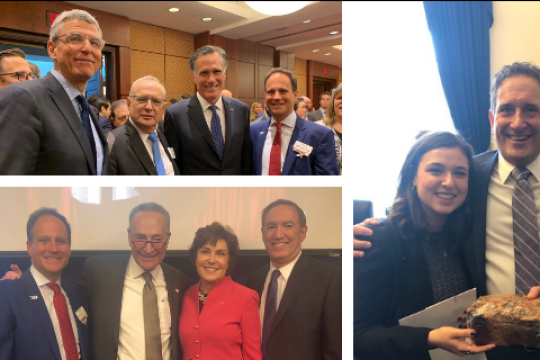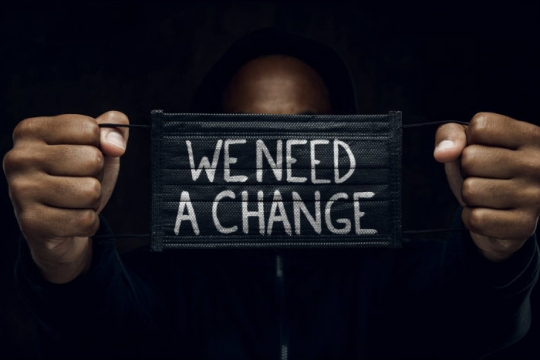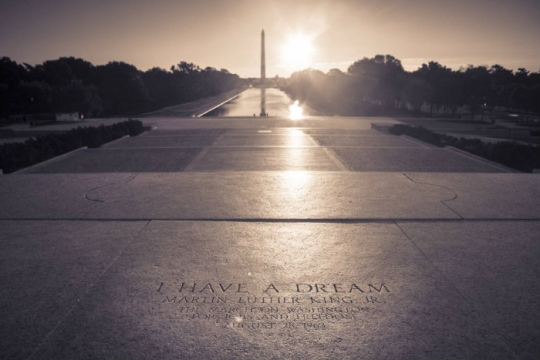
You heard the Reform Movement’s announcement of a civic engagement campaign, calling on your congregation to register voters, host candidate forums, or work on local ballot initiatives. You forwarded the email or social media post to your clergy, or maybe they sent it to you. You are excited, yet some concerns gnaw at you:
With our congregation’s hectic fall calendar, how can we possibly add something new?
The prophet Jeremiah sent a letter to the Jewish community with important advice for our first experience in exile. In the sixth century BCE, Jeremiah charged us: “Seek the shalom (the peace and well-being) of the city to where I send you, and pray to God on its behalf, for in its shalom, you will find shalom.” (Jeremiah 29:7)
Finding our congregational and personal shalom has been challenging in many American communities during these highly politicized and polarizing times. As Reform Jews, we know that our prayers for peace in our cities, our states, and our country also require that we act.
Ignoring the political strife in our communities and our congregations does not make it go away. As we enter the fall election cycle, the responsible question for synagogue leadership is “How can we possibly ignore these pressing events outside our synagogue walls?”
Our clergy are beset with conflicting messages about whether or not to speak on politics from the pulpit. How should they respond to this campaign?
In this time of split television screens and polarizing media, clergy can model deliberative and respectful dialogue, providing space for both sides of issues. Some clergy may choose to moderate community conversations, others to simply welcome the community to candidate forums. Clergy are also trained to frame the critical issues of debate in terms of Biblical and Rabbinic teachings, the relevant positions of the Reform movement, and the history of the congregation -- whether from the bimah or in a blog post or Temple newsletter. Clergy involvement in civic engagement sends a message that what happens in our states and our country matters deeply to us as Jews and as Jewish institutions.
Our “go-to” volunteers and paid staff are busy with their existing responsibilities. Who will make this campaign happen?
Congregations often find that causes like this campaign activate members indifferent to more traditional synagogue programming. Look for competencies in these new lay leaders that we call the “5 P’s” -- passion for engaging with the community; proficiency in planning an event or moderating a forum; a personality that honors differing viewpoints; someone who can partner well with the clergy and create a pipeline of volunteers. This civic engagement campaign may become the gateway to deeper synagogue connections for many participants.
God knows -- as we do -- that there is already too much divisiveness in our congregation. Will this campaign create ill will?
The Talmudic method of dialogue and debate guides us to embrace the wisdom that emerges from asking questions and then authentically listening to opposing views. Ancient Rabbinic disputes were decided by the majority, and the majority of voters will similarly determine the outcomes of the fall election. But respectful debate is the cornerstone on which we as Jews have explored issues and made decisions for thousands of years.
The prophet Jeremiah reminds us of our obligation to engage in our communities, and successful American democracy requires us to exercise our right to vote. We stand firmly rooted in Jewish tradition when we show up to educate ourselves collectively and then cast our ballots as private citizens, regardless of how we interpret these responsibilities in the voting booth.
Join us.
The democratic ideals upon which our Torah and our country were both created require our vision and our voices. When we collaborate as congregations, we energize ourselves as Jews, recharging our synagogues, and sustaining our American democracy. Join us in the RAC Civic Engagement Campaign -- as Jews, as synagogues, and as Americans.
Civic Engagement: Every Congregation Counts, Every Vote Counts will officially launch on Tuesday, June 5th with an online Virtual Town Hall event at 8 PM EST. Afterwards, the RAC will host two additional training webinars: one on voter engagement (June 21 at 2 PM EST) and one on candidate engagement (June 28 at 2 PM EST).
Rabbi Judy Schindler and Judy Seldin-Cohen have collaborated on many civic engagement initiatives, recently co-authoring Recharging Judaism: How Civic Engagement is Good for Synagogues, Jews, and America (CCAR Press: 2018). Judy Schindler is Rabbi Emerita of Temple Beth El in Charlotte, North Carolina and Sklut Professor of Jewish Studies and Director of the Stan Greenspon Center for Peace and Social Justice at Queens University of Charlotte. Judy Seldin-Cohen is a retired sales and marketing executive who has spent ten years leading on issues of homelessness and currently chairs a $20 million housing endowment.
Related Posts

RAC Legislative Priorities for the 117th Congress

Justice, Justice Shall We Pursue: Resources for Action after the Capitol Insurrection

